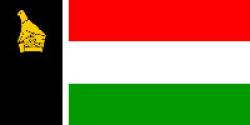
Published date
18 October 1978
Rhodesia, now known as Zimbabwe, became a British colony in 1890. A number of civil unrests occurred during this time. By the 1960's, nationalist sentiment had become strong and calls for Rhodesia's independence were imminent. In 1965, Rhodesia declared itself independent through the Unilateral Declaration of Independence (UDI). A White settler government was established, which was opposed by the Zimbabwe African National Union (ZANU) and Zimbabwe African People's Union (ZAPU),two Black nationalist political organizations.
A civil war broke out between the military wings of ZANU and ZAPA and the UDI government, the former organizations being in favour of a Black Nationalist government. Appeals to the United States and Britain to provide military support for the liberation of Rhodesia proved to be unsuccessful. ZANU, under the leadership of Robert Mugabe, thus turned to China and the Soviet Union, establishing military bases in Zambia and Mozambique. This liberation struggle, commonly referred to as the Rhodesian Bush War, broke out in 1972. Attacks were carried out by ZANU and ZAPU guerillas on White owned farms. The forces of the White Rhodesian regime retaliated by attacking guerilla bases. One such attack was carried out in Mozambique on 18 October 1978, resulting in the death of over 200 people.
Soon after this event, however, a resolution was reached, and the country became known as Rhodesia-Zimbabwe. In a general election the following year, Zimbabwe emerged as an independent state, with Abel Muzorewa serving as the country's first Black prime minister. In 1980, Robert Mugabe took leadership of Zimbabwe, a post which he currently holds in a power-sharing agreement with Morgan Tsvangirai.
References
Bute, E.L. & Harmer, H.J.P. (1997). The Black Handbook, London: Cassell.|
Postcolonial Studies,Zimbabwe's Struggle for Liberation, [online] Available at: postcolonialstudies.emory.edu [Accessed:17 October 2013]